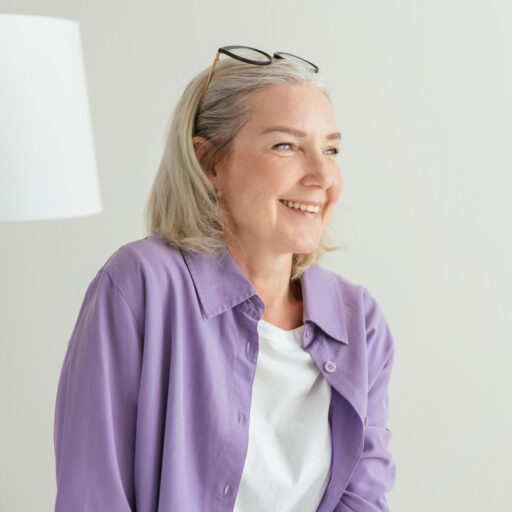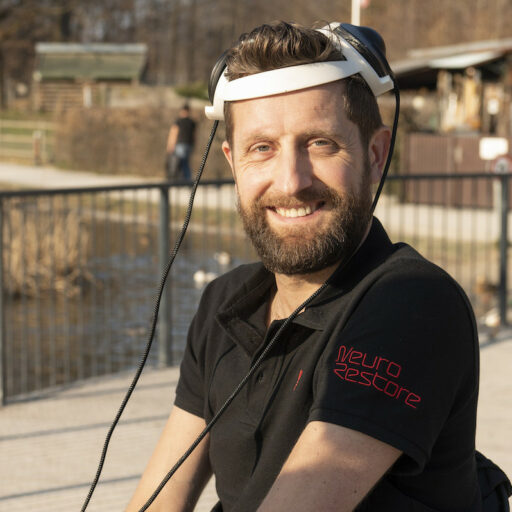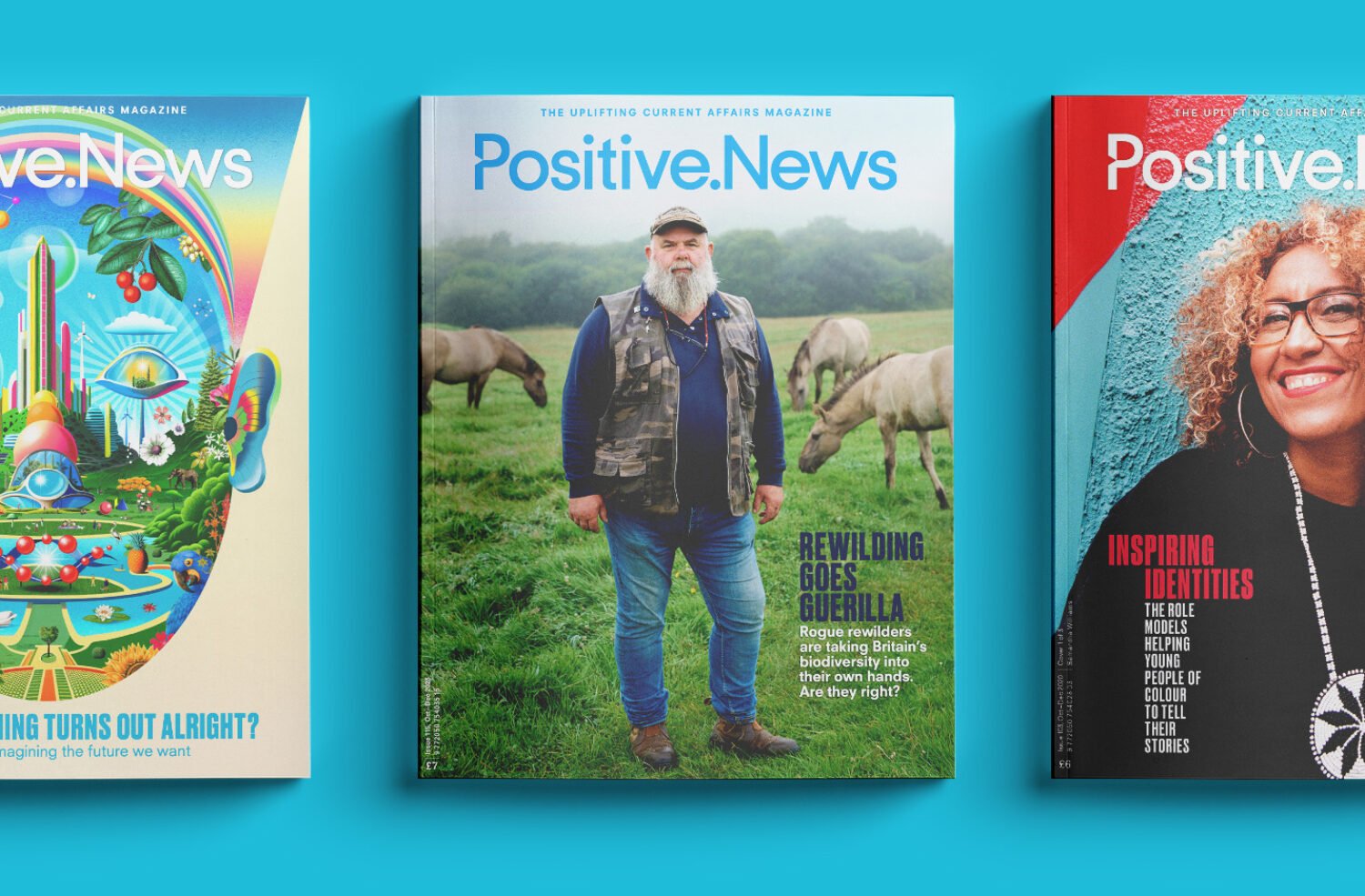Green energy eclipsed fossil fuels, a tech breakthrough helped a paralysed man walk, and an English conservation project went swimmingly, plus more
This week’s good news roundup

Renewables are leaving fossil fuels trailing in their wake, according to a new report by the International Energy Agency (IEA). It predicted that investment in green energy would surge to $1.7tn (£1.37tn) this year, far outstripping the circa $1tn (£810bn) predicted for oil, gas and coal. Five years ago, the ratio was one-to-one.
The IEA said that the war in Ukraine and concerns about the affordability and volatility of fossil fuels were “strengthening the momentum behind more sustainable options”.
“Clean energy is moving fast – faster than many people realise,” said IEA executive director Fatih Birol. “This is clear in the investment trends, where clean technologies are pulling away from fossil fuels.”
Image: Sander Weeteling

Climate litigation is hitting fossil fuel firms where it hurts – in their share prices – according to first-of-its-kind research.
Taking polluters to court for climate damage has emerged as an effective tactic for environmental groups and concerned citizens. A recent ruling by the US supreme court is likely to improve their chances of winning, too.
Now, a study by the London School of Economics suggests that the relative value of fossil fuel firms fell by an average of 0.57 per cent after a case was filed and by 1.5 per cent after an unfavourable judgment.
That’s small fry for big oil, but researchers hope their work will encourage lenders, regulators, and governments to consider the effect of climate litigation when making investments, and ultimately encourage greener investing.
Image: Johannes Plenio

A drug predicted to revolutionise menopause treatment has been approved by US regulators – and could be given the green light in the UK by the end of the year.
Around 70 per cent of women going through the menopause experience hot flushes, which can significantly disrupt their lives. Some women are prescribed hormone replacement therapy (HRT) to help, but the treatment is not suitable for everyone – hundreds of thousands of women in the UK alone cannot take it.
Enter fezolinetant. In clinical trials it was found to reduce the frequency of hot flushes by up to 73 per cent. Prof Waljit Dhill, who led one study at Imperial College London, described the drug as “a gamechanger”.
Image: Mikhail Nilov

In a medical first, a paralysed man has walked again thanks to implants in his brain that can read his thoughts.
Gert-Jan Oskam (pictured), a Dutchman left paralysed after a cycling accident, is the first person to test the technology. The electronic implants wirelessly transmit his thoughts to his legs and feet via a second implant on his spine.
The system, created by the Swiss Federal Institute of Technology Lausanne, is still in its infancy. But it raises the prospect of other people who have lost the use of their legs being able to walk again.
“For 12 years I’ve been trying to get back on my feet and now I’ve learnt how to walk again,” said Oskam. “This simple pleasure represents a significant change in my life.”
Image: CHUV/Gilles Weber

Grounding private jets could significantly cut the carbon footprint of aviation, according to a study commissioned by the UK government, which is being urged to get a grip on rising demand for private flights.
The study by the consultancy Frazer Nash found that 75 per cent of the sector’s emissions come from business aviation, namely private jets. According to Greenpeace, about 90,000 private jets departed the UK last year, belching out around 600,000 tonnes of CO2.
“Reducing these flights by half would reduce the sector’s emissions by approximately 37 per cent, almost all the decarbonisation required under the balanced net zero pathway,” the study said. “The Department for Transport should consider measures to reduce demand of unsustainable carbon intensive flights.”
Image: Jakob Rosen

Could a relic from aviation’s history be the low-carbon future of air travel? That’s the hope for the burgeoning airship sector, which is racing to put passenger blimps in the skies this decade.
The firms leading the charge claim that their zephyr-style aircrafts offer a greener, more pleasant form of air travel, utilising technology that’s already available.
But will they take off? Positive News investigated. Read our report here.
Image: Flying Whale

More than half of the solar panels required to hit the UK government’s climate targets could be fitted to existing rooftops and above car parks, a report has found.
The research by University College London suggests that decarbonising the grid requires much less land than originally thought. It found that existing developments could provide at least 40-50GW of solar power in England by 2035.
“We are missing a trick in failing to install more solar panels on roofs and car parks,” said Roger Mortlock, chief executive of the Campaign to Protect Rural England. “Rooftop solar has almost universal public support. It’s unobtrusive and largely out of the line of sight, which means less objections and a speedier passage through the planning system.”
Image: Team Jackson/iStock

A festival that celebrates the contribution refugees have made to the city of Bristol is set to return next month.
Compassion is the theme of this year’s Bristol Refugee Festival, which comes amid hardening rhetoric about refugees from some politicians. The event will feature music, arts, food and sport, and will be hosted at venues across the city from 12-25 June.
Jules Olsen, festival director, said the aim was “to encourage localised community-led gatherings to help more areas get involved in creating places of welcome and inclusion for all.”
Image: Martyna Bober

An English conservation effort is going swimmingly after the return of an endangered fish to spawning grounds in Worcestershire.
The Canal and River Trust’s Unlocking the Severn project built four fish passes to help twaite shad migrate upstream. Dubbed ‘May fish’ for their preferred month for migrating to freshwater, they declined in the 19th century thanks to weir construction on the River Severn.
The Environment Agency confirmed their return last year, and one of the passes includes an underwater viewing gallery where the fish can be seen making their journey. Tours and viewings can be booked through to the end of July here.
Image: Pete Medlicott

Going veggie or vegan can reduce your risk of having a heart attack and stroke, according to a new paper published in the European Heart Journal.
Researchers analysed four decades’ worth of trials comparing groups of people who followed a plant-based diet with groups who continued as omnivores.
Vegetarian and vegan diets were associated with a 14 per cent reduction in artery-clogging cholesterols, a leading cause of strokes and heart attacks.
Those considering making the switch, however, should plan diets so they are getting key nutrients, like vitamin B12, which are more common in animal-based foods.
Image: Ralph Kayden

Medicine’s most ignored organ? That’ll be the clitoris, but not for much longer perhaps.
This week Positive News reported on global efforts to bring this neglected part of the anatomy out of the shadows and break the taboos that hitherto have stymied research.
The development could have positive implications for women’s health and pleasure. Read the full story here.
Image: Miléna Bucholz
Main image: Stefano Lunardi/iStock
Get your weekly fix of good news delivered to your inbox every Saturday, by signing up to the Positive News email newsletter.
Help us break the bad news bias
Positive News is helping more people than ever to get a balanced and uplifting view of the world. While doom and gloom dominates other news outlets, our solutions journalism exists to support your wellbeing and empower you to make a difference towards a better future. And as Positive News’ audience and impact grows, we’re showing the rest of the media that good news matters.
But our reporting has a cost and, as an independent, not-for-profit media organisation, we rely on the financial backing of our readers. If you value what we do and can afford to, please consider making a one-off or regular contribution as a Positive News supporter. From as little as £1 per month, you’ll be directly funding the production and sharing of our stories – helping them to benefit many more people.
Join our community today, and together, we’ll change the news for good.






